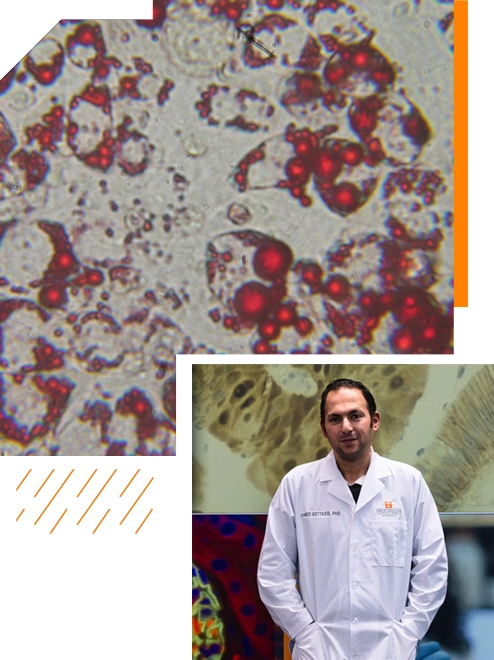
MS in Public Health
A graduate degree in Community Nutrition from the University of Tennessee can lead to excellent careers and professional opportunities in public health, non-profit organizations, and government agencies.
The program’s mission is to promote an understanding of public health nutrition, including assessment, policy development, and assurance, for the enrichment of the physiological and social well-being of individuals, families, and communities.
One of only eight programs in the country for nutrition leadership education and training for the maternal and child population.Our program focuses on public health nutrition and leads to a graduate degree.
- The Health Resources and Services Administration’s Maternal and Child Health Bureau nutrition leadership training program is funded through a prestigious award, which helps address the need to provide well-trained public health nutrition leaders with special interests in the maternal and child population.
- Member of the Association of Graduate Programs in Public Health Nutrition, Inc.—the primary association dedicated to establishing and maintaining standards of graduate education for Public Health Nutritionists.
- All Public Health Nutrition faculty are registered dietitian/nutritionists and associate members of the Association of State Public Health Nutritionists, which is the leading professional organization dedicated to leadership development of public health nutritionists. All students receive a complimentary student membership while enrolled in the program.
- The Public Health cognate is in association with the Master of Public Health, which is accredited by the Council for Education in Public Health for Community Health/Preventive Medicine. The program was the first in the country to be accredited outside a school of medicine by the Council for Education in Public Health.
The Public Health Nutrition program’s strengths are the use of evidenced-based guidance and its applications to public health issues, including those of the maternal and child population, overweight and obesity.
- A leadership emphasis fosters professional development of alumni, who are demonstrated leaders.
- A population-based focus with an emphasis on community-based strategic planning and program and fiscal management, which prepares alumni for leadership in community-based programs.
- A behavioral emphasis to promote healthy eating and physical activity also prepares alumni to develop, implement and evaluate health promotion programs.
- Strong linkages and collaborations with community partners, including the Knox County Health Department, provide advanced-level practice to complement didactic course work.
- The program is the first in the country to receive federal funding for graduate training. Overall, it is the second oldest program in the country.
- The University of Tennessee has been educating and training master’s-level Public Health nutritionists since 1943. This contributes to a rich history and tradition.
Public Health Nutrition Block Field Experiences
The Public HealthNutrition field experiences are essential to understanding how nutrition programs and services are integrated in community health care delivery systems. Students develop an understanding of and appreciation for the realities of public health nutrition practice and how nutrition-related community priorities and needs are addressed by the public health system. Students integrate theory with practice by interacting with nutrition professionals and community members. They gain confidence in themselves as professionals, develop professional contacts, and clarify career objectives.
Examples of past field placements include:
- Miami-Dade County Health Department in Miami, Florida
- Arizona Department of Health Services in Phoenix, Arizona
- Indian Health Service in Rockville, Maryland
- National Cancer Institute, Division of Cancer Control and Population Studies, Bethesda, Maryland
- Maternal and Child Health Bureau in Rockville, Maryland
- US Department of Agriculture, Food and Nutrition Services in Alexandria, Virginia

Practicum
Practice experiences are incorporated into two 45-hour practicum courses to augment the didactic component of NUTR 503 and 504. Students work with public health nutritionists at the Knox County Health Department, which is a comprehensive metropolitan health department, and other community nutrition agencies. Students learn about how to conduct a community nutrition assessment, as well as, plan, implement, and evaluate programs that benefit the local community.


